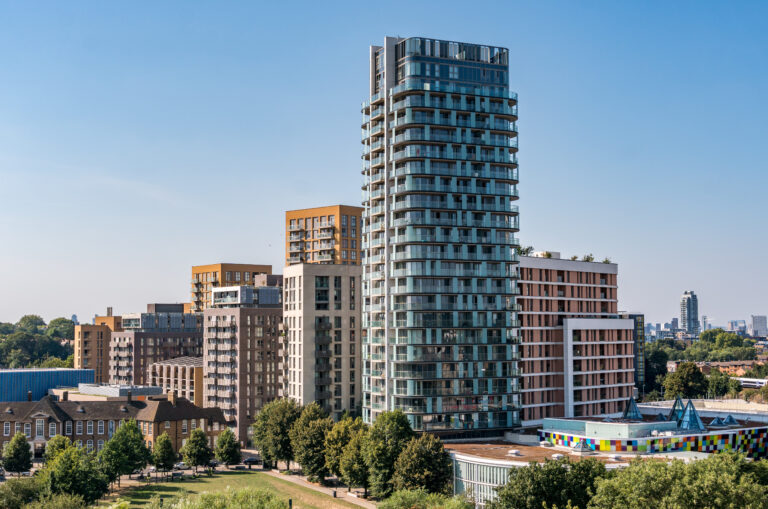Becoming A Property Guardian: What’s It Really Like?

The rising prices in rents across the UK are forcing many Brits to consider other options.
But, if heading into the woods to live off your wits and the fruits (and vermin) of the wild larder doesn’t appeal, then many are now turning to the realms of property guardianship in order to access – at the very least – a roof over their heads at a cheap rate.
What Does Being A Property Guardian Mean?
The concept is actually very simple. A property guardian will take up temporary residence in a property that would otherwise be empty. The property in question isn’t necessarily residential, but could just as easily be a commercial property, such as a vacant, office, church or pub. The guardian will pay a small rent for the property, plus bills.
However, property guardianship is not the same thing as renting in the private sector. The main role of the guardian is indeed to “guard” the property against any intruders, such as squatters. Vacant properties often look as empty as they are, which, as a result, can attract break-ins, vandalism and other anti-social activity.
But, by having someone living in the otherwise-empty-space, property guardians are able to deter such negative attraction, often by just being there.
Is It A Win-Win Situation, Then?
Well, it can be, yes. Rents can be as cheap as £150 a month, and from the owner’s point of view, a lived-in property is much less likely to be burgled or damaged than a completely vacant one.
As ever, so long as you become a property guardian through a reputed company that looks after you and your rights as an individual, then guardianship can be an ideal means of living that can literally save you thousands of pounds in the long run.
However, there are always, of course, cases where things don’t quite run as smoothly as that. In December, The Guardian ran a story about a guardian of a disused council building in Tower Hamlets, East London, who one day received an email saying that he had just 24 hours to pack up his stuff and get out.
And of course, living conditions – perhaps not unexpectedly – are not always as comfortable as they would be under a standard tenancy agreement.
“There were hypodermic needles in the fireplace and on the carpets, rats in the basement, the walls were pushed through and copper piping had been ripped out so it leaked whenever it rained,” said Charlie Fegan, a 24-year-old graduate from Goldsmiths in Vice.com.
“Licensees” NOT Tenants
The amount property guardian agencies has risen in recent years. Major players in the arena like Camelot Europe making good on their promises to tenants.
However, I’ve just allowed a little slippage to come into my prose there. For guardians are not actually “tenants”, but rather “licensees” who hold a “licence to occupy” – which means that they essentially sign contracts to occupy buildings, though without enjoying the usual legal rights that tenants are entitled to.
Indeed, investigations have shown that property guardians are becoming “part of a growing underclass of renters with severely curtailed rights who live in miserable and legally dubious conditions. Meanwhile, the companies that operate the schemes are thriving in austerity London’s housing crisis, where they make profits by turning former public sector buildings into substandard accommodation.”
Rising In Popularity
Despite some of the recent bad press, property guardianship has risen in popularity in recent years – so much, in fact, that Channel 4 have aired a new sitcom, Crashing, written by Broadchurch actress Phoebe Waller-Bridge, which follows the lives of a group of young property guardians who are trying to save money by living together in a disused hospital.
The comedy portrays a rather feel-good light-hearted depiction of property guardianship, and consequently interest in such schemes has risen since its broadcast.
So, what do you need to know if you’re considering becoming a property guardian?
What To Expect By Becoming a Property Guardian
1. Cheaper Rent
This is of course the most attractive element of property guardianship. Licensees can expect access to live in large spaces at bargain rates. Indeed, you may well find yourself in a location that you wouldn’t have ever dreamed possible under normal tenancy.
2. A Little “Rough Around The Edges” (At Best)
Despite the cheap rents, you will of course get what you pay for. The properties wi
ll not be maintained by the owner, so expect mould, mess, leaks, and damage. The owner or the agency will not be interested in making repairs either, especially since the buildings are often empty in the first place due to repurposing plans, or else are set to be demolished.
3. You Might Not Necessarily Feel Safe
As a guardian, your role is protect the property, and, as such, this does imply the fact that the property needs protecting. Abandoned properties attract vandalism and the like, so you may not always feel safe, especially if living on your own.
4. Unfurnished
Fridges, washing machines, beds, sofas – all of this you will have to come up with yourself in most cases.
5. Bills
And don’t forget, just because you’re a property guardian paying a cheap rent this doesn’t mean that your bills are going to be any cheaper than what they would be normally. Electric, gas and water bills will all be the same as anywhere you’ve lived in the past.
6. You Must Be Prepared To Move
Sometimes you will be lucky enough to stay in the same place for months, possibly even years – but you must always be prepared for the fact that you will eventually be forced to move. A good agency will ensure that you are given 28 days’ notice, and will even attempt to re-house you. However, this cannot be guaranteed.
7. Limited Rights
With a “licence to occupy” you have limited rights as compared to normal tenancy agreements. Housing laws on safety fire exits and access to basic facilities may also be frequently violated by guardian companies because they do not aim to meet residential tenancy standards. In the end, it is the guardian him/herself who will have to fight for these rights.
Are you considering becoming a property guardian? Or perhaps you already are or have been one in the past. Wither way, let us know about your thoughts and experiences in the comments below.




